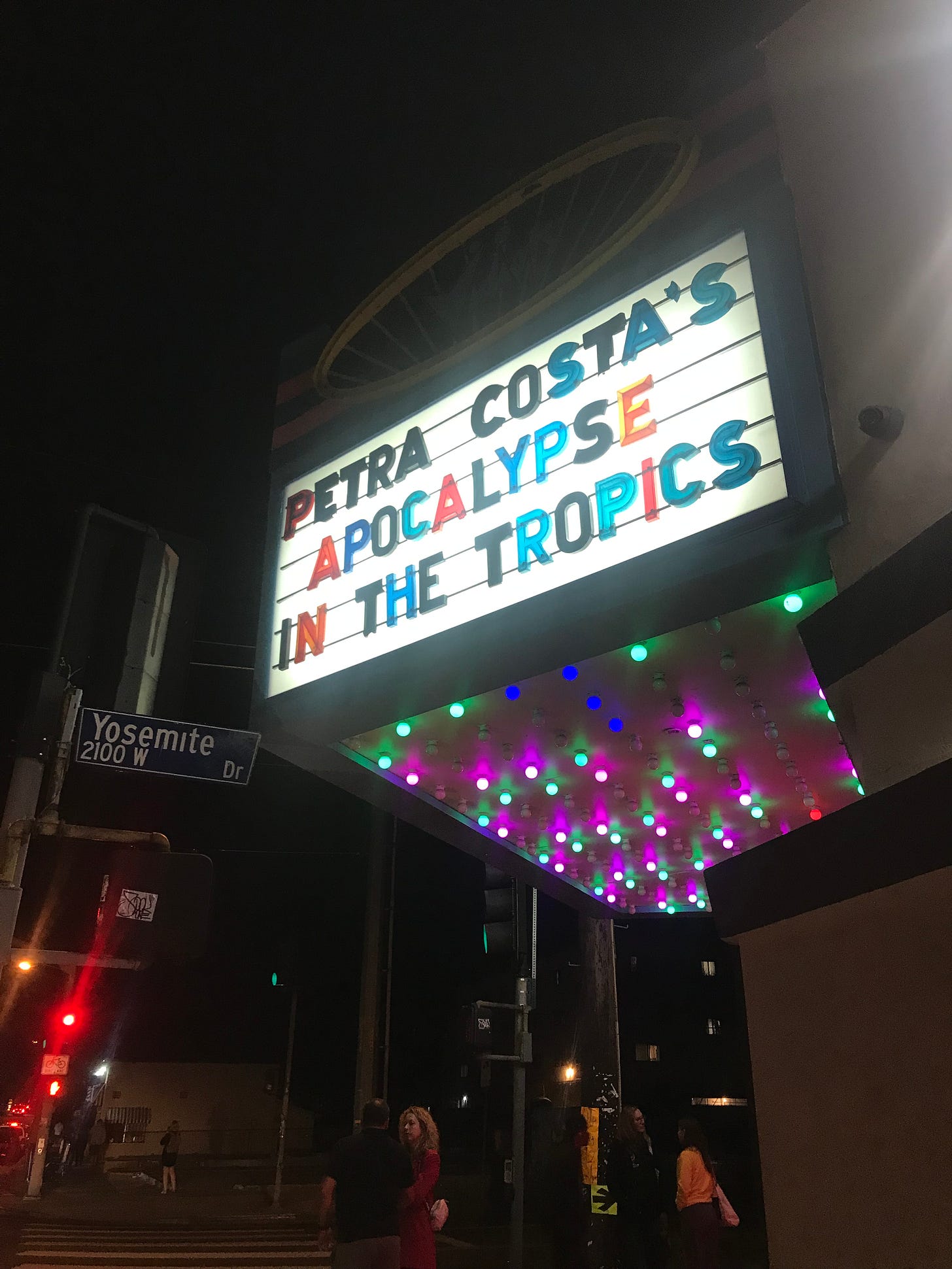The Line Between Order and Progress
This week signaled the need for improved navigation amid a media climate of paramount concessions. In Portuguese, there's a word for that.
The Route 24 Roadmap
I’m on a mission to help restore public trust. This is where I look closer at moments of global and national significance to show how cycles of misinformation and disinformation disorient communities.
Probable Cause is an XR civic education gaming experience that puts you in the driver’s seat during a routine traffic stop. Route 24 is its companion newsletter that invites you to explore our creative process on the project as we build, deconstructing traffic stop data, policing trends, and their community impact to jumpstart public awareness and, in turn, mobilize narrative change.
Scenic Route parks in your inbox on Fridays to merge the lanes of immersive storytelling and politics and help you find a better view.
Here’s where you come in. Every follow, share, and subscription helps to keep this work going and reach the people the mainstream media often misses. For riders in a position to financially contribute, your dollars support the creative team with the critical resources needed to iterate, travel, and scale. Start your engines…
In this issue: One of the first languages I grew up hearing was Portuguese — the language my grandmother would speak to me in. Although today my fluency in English far surpasses my Portuguese proficiency, when I first read Fernando Henrique Cardoso’s memoir, The Accidental President of Brasil, his description of the adage — jeitinho — held such resonance. Jeitinho signals a way of navigating around persistent roadblocks — of manifesting seemingly impossible goals — something that’s deeply embedded within Brasil’s culture. Much like the country’s slogan, Ordem e Progresso, it is an interpretation of French philosopher Auguste Comte’s positivist mantra, and one that echoes the spirit of Bastille Day, “Love as the beginning, and order as the base; progress as the end.”
On Monday, I attended a screening of Petra Costa’s Apocalypse in the Tropics. With a narrative steadiness that juxtaposes current affairs and biblical fine art, Petra Costa and Alessandra Orofino reveal how the strategies deployed by Bolsonaro loyalists and the MAGA base are eerily similar, particularly in how both have glorified demagogues and galvanized evangelical constituencies. Considering the implications of the recent Colbert Show cancellation and the defunding of public media, it seems the U.S. could benefit from a closer look at the lessons from Brasil’s body politic.
On the anniversary of Nelson Mandela’s birthday, I’m reminded of the power of music to speak volumes where words alone fall short. In my time at Wadham, we upheld a tradition first instituted by the student union in 1984 to end every school dance with The Specials song, “Nelson Mandela” — a tribute to Mandela’s legacy of resisting South African apartheid.
If you’re not familiar, give it a listen here:
My challenge to you, dear road warriors, is to embrace a moment of jeitinho this weekend. Please share your thoughts with me when you do.
As always, thank you for coming along for the ride!
Stay the course,
Sam
Sam Reetz, is a filmmaker, performer, and founder at Millennial Ethics, creating narrative solutions to complex issues.
Follow her work on Bluesky, Substack and Instagram.
*Note: I’ve chosen to use the Portuguese spelling for any and all mentions of Brasil rather than the English spelling (Brazil).
New Features! A few weeks ago I interviewed with Canvas Rebel and The NYWIFT Podcast to discuss our work and mission at Millennial Ethics and this publication. Thank you to the NYWIFT and Canvas Rebel teams for the opportunity! Explore the full story at the links.







